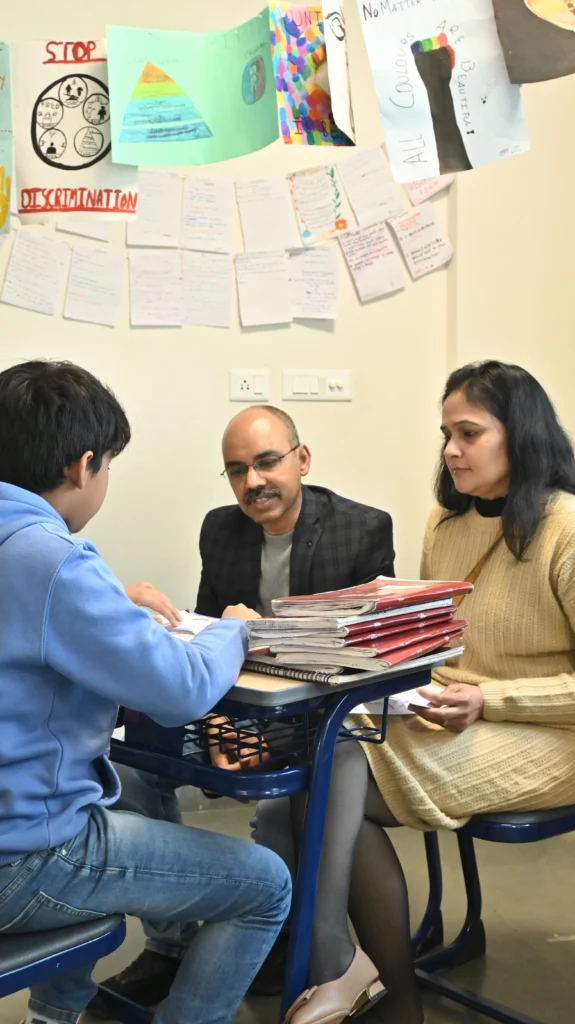A silent revolution is occurring at home in the ever-changing educational scene of today. Co-learning, a far more involved approach, is replacing the conventional model in which parents provide passive support while their children learn in school. Co-learning homes are settings in which parents actively engage with their children’s educational process, frequently learning alongside them.
The pandemic and distant learning are speeding up this change, which is changing the roles of caregivers and educators. Families are realizing that education can be a shared experience that fosters lifelong learning, deepens ties, and piques curiosity as digital tools and individualized learning models become more and more common.
- A Novel Approach to Home Education
Parents are now able to participate more actively in their children’s education thanks to the move to digital and remote learning. Families now participate in cooperative learning activities, transforming homework time into a time for mutual discovery, thanks to the easy access to online platforms and resources. This concept encourages the development of relationships in addition to academics.
- The Reasons Behind Parents’ Decision to Co-Learn
Parental involvement was spurred by the pandemic, which revealed learning gaps. Parents nowadays want to personalize and enhance their kids’ education at home. With parents serving as mentors and supporters, co-learning also fosters emotional development. Every day, even ten to fifteen minutes of collaborative learning can have a significant influence.
- The Co-Learning Model’s Advantages
Youngsters imitate what they observe. Children pick up qualities like curiosity and tenacity from their parents. Co-learning fosters a love of lifelong learning, improves communication, and increases confidence. Additionally, it gives parents a clearer understanding of their child’s strengths and challenges, which enables them to provide more specialized care.
- Obstacles and How to Get Past Them
Subject worry and hectic schedules can discourage parental participation. However, co-learning only requires interest and presence, not competence. Parent workshops are one way that schools can encourage this change, and families can stay inspired and supported by participating in community-based learning pods or using bite-sized materials.

- Co-learning Is Now Possible Thanks to Technology
Parents may now learn alongside their children thanks to digital resources like YouTube, Khan Academy, and Duolingo. These resources enable flexible, self-paced learning, which breaks down boundaries. In order to create a shared educational journey within the home, parents can now review academic topics or investigate new ones in real time.
- Enhances Emotional Connections
The emotional bond between a parent and kid is strengthened through co-learning. Empathy and respect are fostered by exchanging intellectual challenges and discoveries. Parents can more easily support their child’s academic and personal development beyond simply helping with examinations or assignments thanks to these experiences, which improve communication and understanding.
- Aids Parents in Recognizing Educational Deficits
Parents can learn more about their child’s areas of difficulty through co-learning. Schools might not always notice learning gaps in time, but they are able to recognize them early. With this knowledge, they can look for extra help, tuition, or interventions to keep the youngster on course and feel supported.
With the emergence of co-learning homes, parents are becoming active players in their children’s educational journeys rather than merely passive supports, signaling a revolutionary change in contemporary education. In families, this cooperative approach builds a culture of lifelong learning, encourages curiosity, and fortifies emotional ties.
Even modest, regular efforts have a significant impact, despite obstacles like time restraints and lack of academic confidence. Co-learning gives parents and kids more authority and fosters a common environment for learning, development, and resiliency. The home is turning into a vital learning center as education advances—a place where curiosity, empathy, and knowledge are fostered daily.
Vega Schools offers holistic education to children in Delhi NCR and is rated among the top Schools in Gurgaon. Its modern infrastructure, facilities, and experienced teachers are a big asset to the learning & development of students, be it for Nursery, Primary or Senior children making Vega Schools the best schools in Gurgaon. For information about admission please visit the Vega Schools campuses in Sector 48 and Sector 76 Gurugram.
